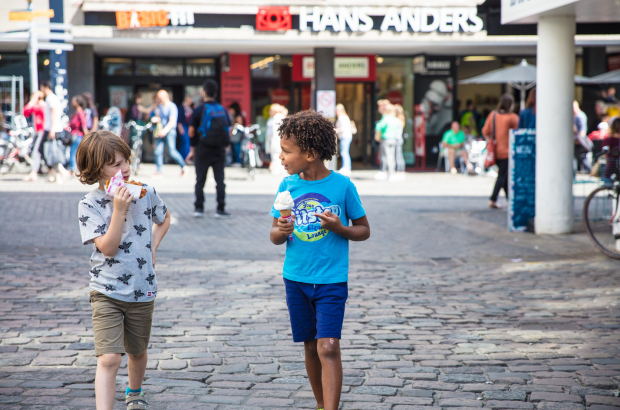- Daily & Weekly newsletters
- Buy & download The Bulletin
- Comment on our articles
Ghent is Belgium’s most-liveable city, says Greenpeace
According to a study commissioned by the Belgian chapter of Greenpeace, Ghent is the country’s most-liveable city when it comes to sustainable mobility and air quality. Belgium’s five largest cities were considered for the survey: Brussels, Antwerp, Ghent, Liège and Charleroi.
The study, carried out by the Wuppertal Institute for Climate, the Environment and Energy, looked at five mobility and environment-related issues: public transport, mobility policies, traffic safety measures, concentration of fine particles and greenhouse gasses, and ‘active mobility’ such as walking and cycling.
Ghent (pictured) has its circulation plan, ushered in last year, to thank for its leadership position. The circulation plan increased pedestrian-only areas in the city centre and made it impossible for cars to get from one side of the centre to the other without using the ring road. It was recently reported that the centre of the city has seen a drop in pollution because of the plan. Ghent also leads the way when it comes to cyclists who commute to work.
Low emissions = high scores
In what Greenpeace found ‘a surprise’, Brussels came in second in the study. “Our capital does well when it comes to public transport and has a low-emission zone,” said the organisation. “Antwerp follows at number three, also because of the low-emission zone and because of its efforts in traffic safety.”
Liège and Charleroi, meanwhile, bring up the rear. “These cities are dominated by the car,” Joeri Thijs of Greenpeace told VRT. “In Charleroi, 84% of mobility is done with the car or motorcycle, while in Liège the number is 76%. Compare that to Ghent, where that figure is 41%.”
The Walloon cities are also lacking investment in public transport and cycling and pedestrian infrastructure.
Earlier this year, the Wuppertal Institute’s same study of European cities put Brussels near the bottom. And yet it’s number two in Belgium. “The message is clear,” said Greenpeace. “Even the Belgian cities that score the best in terms of sustainability mobility, like Ghent, Brussels and Antwerp, have a huge margin of improvement compared to European cities like Copenhagen, Amsterdam, Zurich and Oslo.”
Photo courtesy VisitFlanders/flickr


















